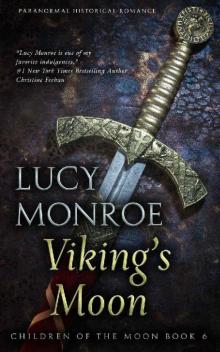 Viking's Moon (Children of the Moon Book 6)
Viking's Moon (Children of the Moon Book 6) Rand (A 3 Brides for 3 Bad Boys Novella)
Rand (A 3 Brides for 3 Bad Boys Novella) Rancher's Rules
Rancher's Rules Regency Scandals: Touch Me, Tempt Me & Take Me Box Set
Regency Scandals: Touch Me, Tempt Me & Take Me Box Set Hot Alaska Nights
Hot Alaska Nights 2017 Christmas Coda: The Greek Tycoons
2017 Christmas Coda: The Greek Tycoons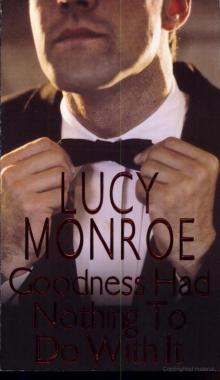 Goodness Had Nothing to Do With It
Goodness Had Nothing to Do With It Kostas's Convenient Bride
Kostas's Convenient Bride Watch Over Me
Watch Over Me After The Billionaire's Wedding Vows…
After The Billionaire's Wedding Vows…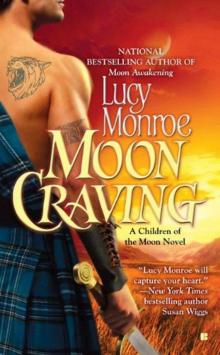 Moon Craving
Moon Craving Million Dollar Christmas Proposal
Million Dollar Christmas Proposal The Maharajah's Billionaire Heir
The Maharajah's Billionaire Heir For Duty's Sake
For Duty's Sake The Latin Lover
The Latin Lover And Able
And Able Silver Bella
Silver Bella The Real Deal
The Real Deal Wild Heat (Northern Fire)
Wild Heat (Northern Fire)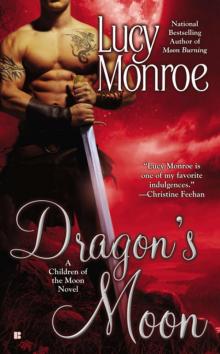 Dragon's Moon
Dragon's Moon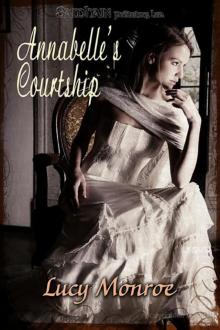 Annabelle's Courtship
Annabelle's Courtship The Spaniard's Pleasurable Vengeance
The Spaniard's Pleasurable Vengeance The Shy Bride
The Shy Bride The Rancher's Rules
The Rancher's Rules Sheikh's Scandal
Sheikh's Scandal The Greek's Innocent Virgin
The Greek's Innocent Virgin Carter (A 3 Brides for 3 Bad Boys Novella)
Carter (A 3 Brides for 3 Bad Boys Novella) Enthralled
Enthralled Not Just the Greek's Wife
Not Just the Greek's Wife Heart of a Desert Warrior
Heart of a Desert Warrior Scorsolini Baby Scandal
Scorsolini Baby Scandal The Billionaire's Pregnant Mistress
The Billionaire's Pregnant Mistress Wedding Vow of Revenge
Wedding Vow of Revenge Warrior's Moon
Warrior's Moon The Spy Who Wants Me
The Spy Who Wants Me Warrior's Moon cotm-5
Warrior's Moon cotm-5 Prince of Secrets
Prince of Secrets The Sicilian’s Marriage Arrangement
The Sicilian’s Marriage Arrangement Pregnancy Of Passion
Pregnancy Of Passion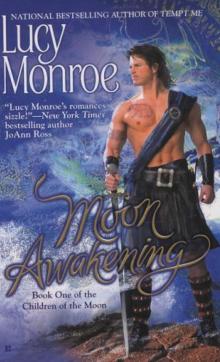 Moon Awakening cotm-1
Moon Awakening cotm-1 Satisfaction Guaranteed
Satisfaction Guaranteed Heatseeker (Atrati)
Heatseeker (Atrati) Willing
Willing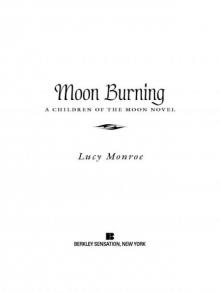 Moon Burning
Moon Burning Close Quarters
Close Quarters Taken the Spaniard's Virgin
Taken the Spaniard's Virgin One Night Heir
One Night Heir AN HEIRESS FOR HIS EMPIRE
AN HEIRESS FOR HIS EMPIRE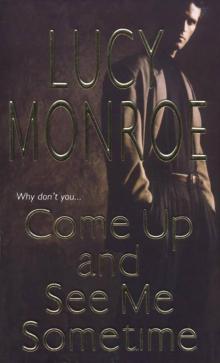 Come Up and See Me Sometime
Come Up and See Me Sometime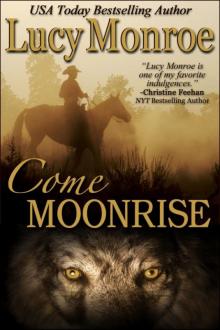 Come Moonrise
Come Moonrise BoughtGreeksBride
BoughtGreeksBride Ready
Ready 3 Brides for 3 Bad Boys
3 Brides for 3 Bad Boys TOUCH ME
TOUCH ME